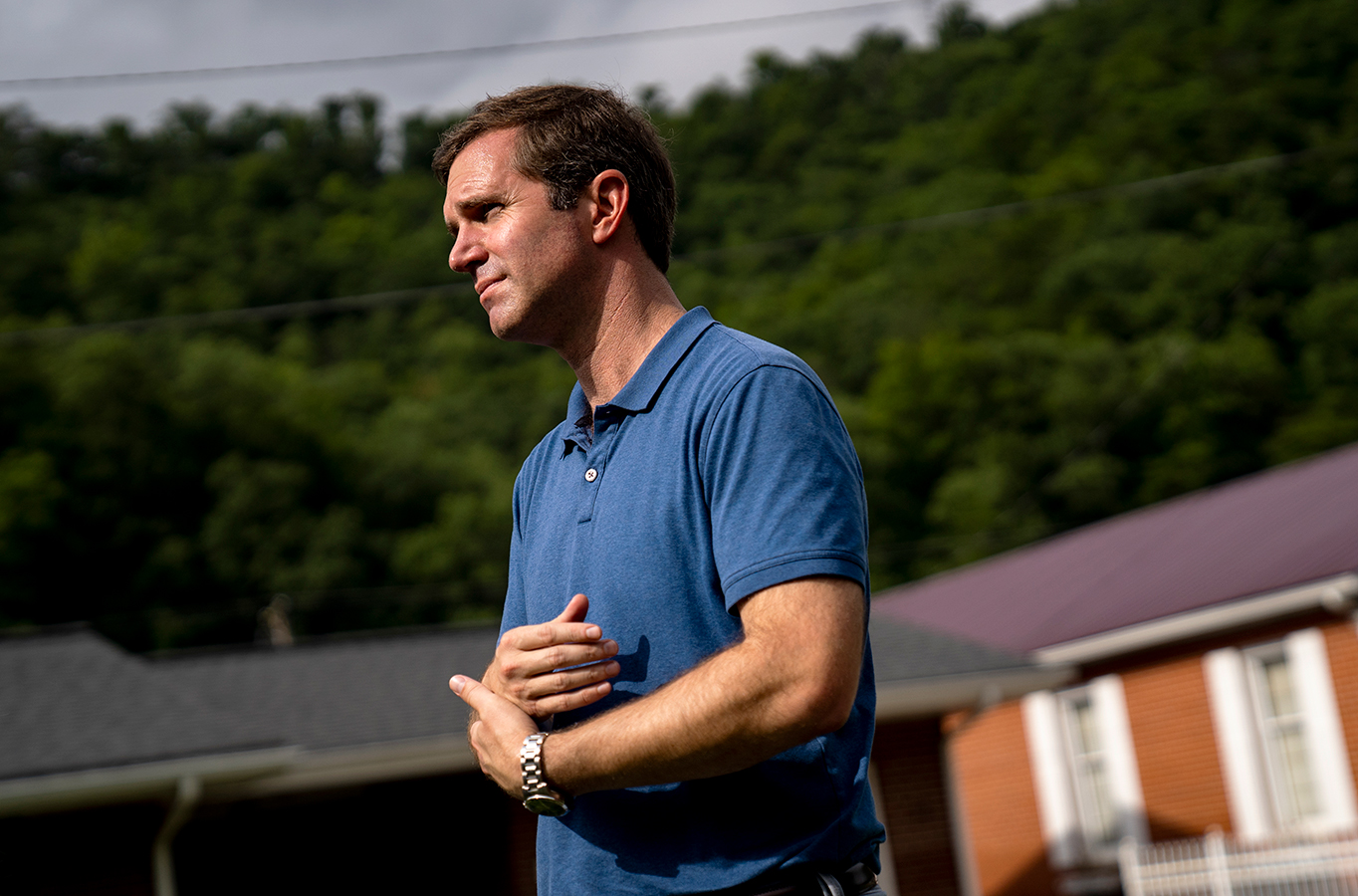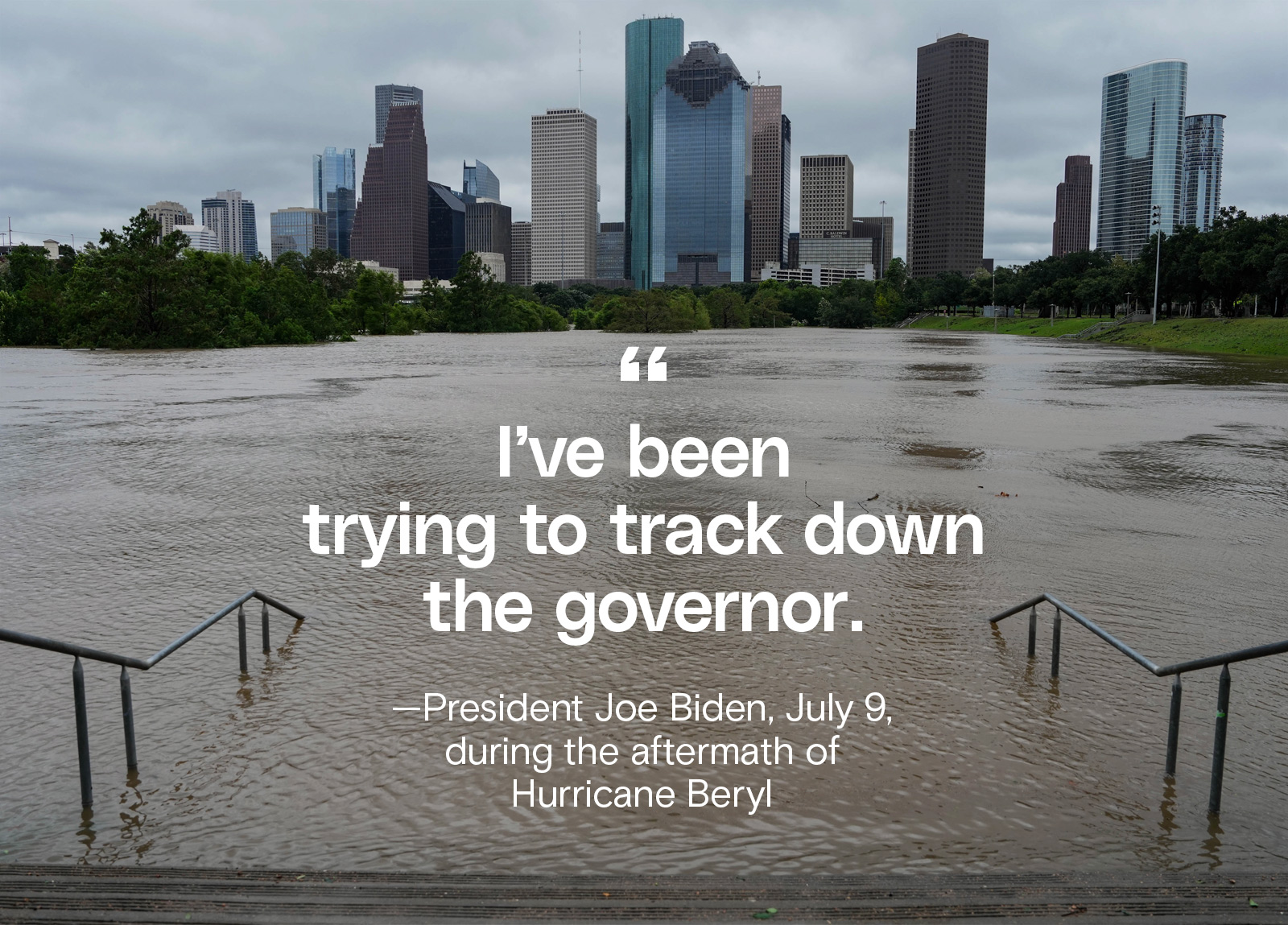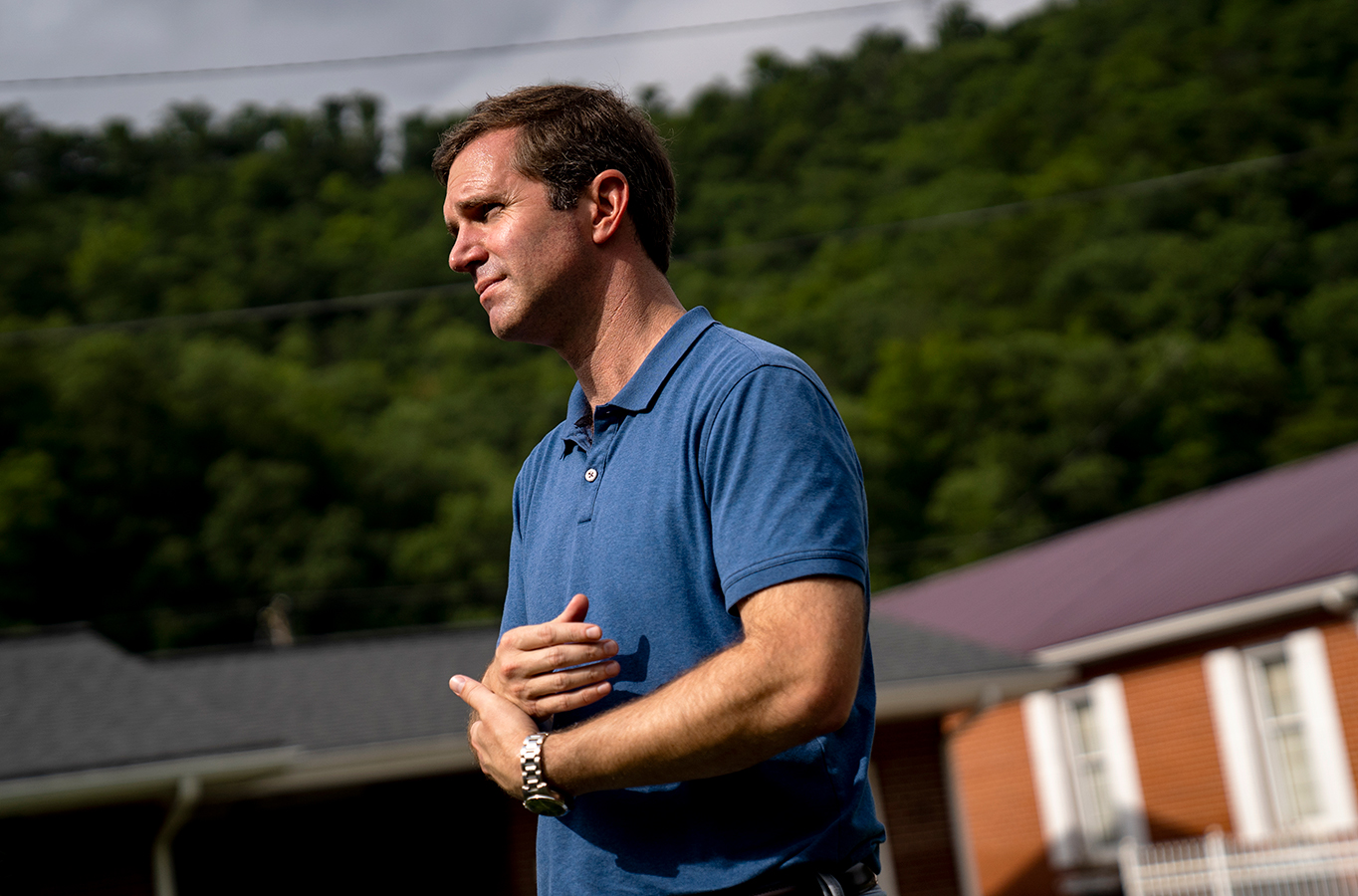Hello everyone, and welcome back to State of Emergency. I’m Jake, and today we’re going to be talking about how a politician’s disaster response can influence voter attitudes and election outcomes.
In July 2022, a storm dropped more than 14 inches of rain on Kentucky, sending flash floods rolling through the mountainous counties in the eastern part of the state. The waters killed more than 40 people, sweeping some away on powerful currents, and dangerous landslides destroyed almost 9,000 homes. The region’s rural counties bore the brunt of the damage, adding to their already roiling housing crisis and high poverty rates.
The state’s Democratic governor, Andy Beshear, spent weeks touring hard-hit areas and comforting flood victims, earning him the title “consoler in chief.” He also pulled out all the stops to ensure the recovery was as fast as possible: He fought the Federal Emergency Management Agency, or FEMA, to increase its aid payments to victims, reallocated $200 million from the state’s budget reserve to help towns rebuild, set up a state-run charitable fund to raise millions more in private donations, and acquired land on high ground to build new housing developments.

Kentucky Governor Andy Beshear speaks to the press on July 31, 2022 in Whitesburg, Kentucky.
Michael Swensen / Getty Images
The following year, Beshear was up for reelection in his red state, where Donald Trump had won by more than 25 percentage points and where Republicans hold supermajorities in both legislative chambers. Not only did he win another term, he improved on his margins in the first election. Beshear’s electoral success in Appalachia led to speculation that Vice President Kamala Harris would choose him as her running mate.
There were a number of reasons for his victory, including public anger over the state’s stringent abortion laws, but Beshear made big gains in the rural counties that had suffered the most during the 2022 disaster. The residents of those communities were still rebuilding from the floods, but they trusted Beshear to help them recover.
“People didn’t just hear about Andy coming to Breathitt County, he actually came and he actually brought help when he came every time,” said Jeff Noble, the county judge for Breathitt County, in an interview with a local news station last year. Trump won more than 75 percent of the vote in the county in 2020.
“…the lesson is clear: Voters value an authentic disaster response from their politicians, so much so that it can override other political values.”
Big disasters often thrust politicians into the media limelight, allowing them to pose for photo ops with victims and make solemn recovery vows at press conferences. Chris Christie, the Republican governor of New Jersey, saw his approval ratings skyrocket in the aftermath of 2012’s Superstorm Sandy, when he famously embraced then-President Barack Obama on an airport tarmac in Atlantic City. During the early days of the coronavirus pandemic, New York’s then-governor Andrew Cuomo became a household name for his daily virus briefings. A study of elections in Italy found that earthquakes “significantly increase … incumbent mayors’ chance of being reelected and their vote share,” in large part thanks to “higher visibility in the media.”
It’s impossible to say with certainty whether Beshear’s post-flood political success in the eastern part of the state came about because he delivered genuine material aid to the region, or whether it was just the result of higher media visibility. To be sure, the recovery has not been smooth, and it is far from over. As Grist and Blue Ridge Public Radio’s own Katie Myers has reported, many residents still feel lost and abandoned as they navigate a post-flood housing shortage. Even so, the lesson is clear: Voters value an authentic disaster response from their politicians, so much so that it can override other political values. In a hyper-partisan election environment, and one where climate change is making disasters more severe, it’s a point worth remembering.
You can read more Grist reporting about the recovery from the 2022 floods here and here.
Don’t mess with Texas
Whereas Beshear earned praise for working across party lines to aid flood victims in Kentucky, other governors have drawn criticism for politicizing the disaster process. In the aftermath of July’s Hurricane Beryl, President Joe Biden accused Texas leaders of delaying their request for a disaster declaration, a necessary step before FEMA and other federal agencies can provide emergency aid. The state didn’t get an emergency declaration until more than a day after the storm struck Texas, something that often happens well before a hurricane even makes landfall. The state’s governor, Republican Greg Abbott, was out of the country, and Biden said Lieutenant Governor Dan Patrick had dragged his feet on requesting aid. Patrick called the comments “a complete lie.”

The rising Buffalo Bayou waterway near downtown Houston just after Hurricane Beryl made landfall in Houston.
Raquel Natalicchio / Houston Chronicle via Getty Images
What we’re reading
Fracking takes center stage at debate: You might have heard there was a presidential debate last week. Vice President Kamala Harris touched on how climate change is impacting insurance costs, but as my colleague Zoya Teirstein writes, the main climate focus was on fossil fuels.
The hidden factors fueling Francine: Hurricane Francine made landfall in storm-ravaged Louisiana as a Category 1 storm last week, and my Grist colleague Matt Simon has a story on how decades of land subsidence and sea level rise may have led to higher storm surge in coastal areas.
Louisiana governor touts flood defenses: After Francine made landfall, Louisiana’s Republican governor, Jeff Landry, touted the state’s past adaptation efforts, saying that its billions of dollars of spending on levees and land restoration likely reduced storm damages.
Campaigning in extreme heat: Both Republicans and Democrats are struggling to campaign outside in the swing states of Arizona and Nevada as daytime highs exceed 110 degrees Fahrenheit. Bloomberg’s Zahra Hirji followed door-knockers campaigning in a crucial congressional district in the Phoenix suburbs in brutal heat.
Smoked out: Kamala Harris’ running mate Tim Walz had to rearrange his tour of battleground states last week after a rash of wildfires in Nevada forced him to cancel a campaign stop in Reno. A fire near the area has burned more than 6,500 acres.

